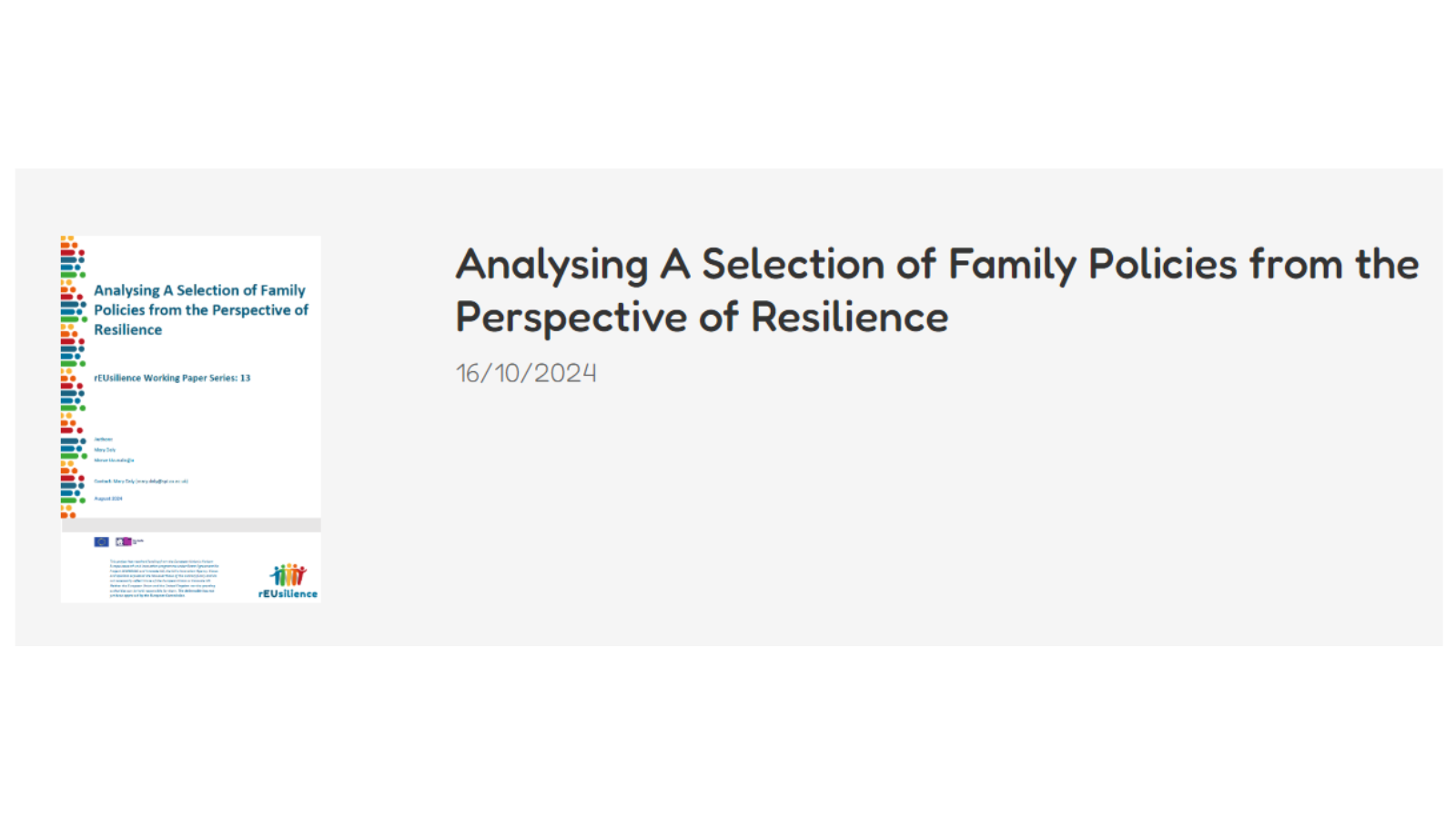Resilience is a term that has been gaining more and more attention in policy discourses. Still, often these discourses fail to capture the realities of family life and the structural inequalities at play. Therefore, it is key that we dive further into how families navigate adversity and understand the role that policy can play in supporting families to undergo everyday transitions through care and paid employment without accruing negative outcomes.
The latest research coming from the European research project ‘rEUsilience’ , with COFACE as an internal partner, analyses social policy provision in six European countries (Belgium, Croatia, Spain, Sweden, Poland, and the UK) to assess to what extent policy systems in these countries support families to be resilient. This working paper examines how policy supports transitions for all parents between care and employment. A particular focus is placed on three types of family situation that our research identifies as needing extra support: parenting alone, caring for child with a disability or illness, and families with a migrant background. Consequently, five key areas of policy are analysed: parenting-related leaves, early childhood education and care (ECEC), provisions for lone-parent families, provisions for families with children with a disability, and provisions for families with a migration background.
The main findings are that:
- Some policy fields seem to be better equipped, or further along the road, than others in helping families to be resilient. The policies oriented to transitions, such as parental leaves and ECEC, generally seem to be better developed than those for family situations with heightened risk.
- Conditions that exclude people from benefits and services reduce policies’ effectiveness (from a resilience as well as other perspectives).
- Where the EU has set legal benchmarks most countries meet them, and so the significance of the EU as a policy agent is confirmed. But where the EU only makes ‘soft recommendations’, they do not seem to embed thoroughly into the national systems.
- The recognition that some families need more is not fully reflected in the policy systems. One big issue is that of equivalence in support for lone-parent families compared to those with two parents. The lack of information on and system knowledge about certain types of families, especially with children with disabilities and migrant families, is a general weakness found across countries.
The full research can be found here.
For further information, contact Holly Shorey, Senior Project and Advocacy Officer rEUsilience: hshorey@coface-eu.org





